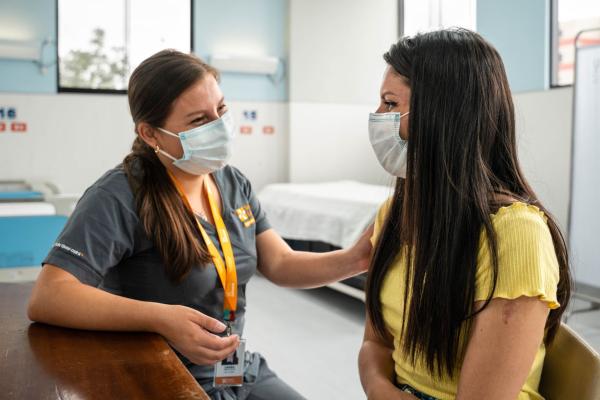A little more than three years have passed since the beginning of the COVID -19 pandemic in Peru, a period of time that, as a result of the mandatory quarantine and the fear of contagion, produced an unprecedented impact on the mental health of people around the world, and which highlighted the work of psychologists in society.
On the occasion of the creation of the College of Psychologists of Peru, on April 30, 1980, every year this date is commemorated to highlight their work in relation to the attention and care of the mental health of the population.
In that sense, psychologists are responsible for the study and treatment of mental, emotional and behavioral processes of people. They use various techniques and tools to propose a course of action that favors psychoemotional well-being, thus achieving an adequate adaptation to the family, academic, work, and personal environment.
Abrupt changes in daily habits, such as that produced by the COVID-19 pandemic, disconnection from nature, and changes in family roles (due to teleworking, homeschooling, or even unemployment) have resulted in high levels of stress over weeks or even months, leading to an increase in 25% in the prevalence of anxiety and depression worldwide, making the work of psychologists even more relevant these days.
Signs and warning signs to identify mental health problems
According to Patricia Calongos, a psychologist at the Mental Health Program at Socios En Salud (SES), there are factors such as rates of violence at both the intrafamily and social levels, alcohol and drug use, conflictive interpersonal relationships, bullying, unemployment or social injustices that could cause a person’s mental health to be affected, manifesting itself through indicators such as sadness, insomnia, crying, discouragement, negative thoughts, suicidal ideation, among others.
Calongos explains that it is important to understand the concept of health not only as the absence of disease, but as a balance between physical, emotional and social health. Faced with this, the participation of psychologists in providing emotional accompaniment is fundamental to achieve healthy living.
“In addition, the COVID-19 pandemic has shown that we can all go through mental health problems in adverse situations, even for some people it is very difficult to overcome them on their own, so they require professional care,” he says.
Recommendations to improve our mental health
The specialist points out that it is essential to establish limits in our daily life to avoid over-stressing or affecting our mental health, which revolve around three aspects:
- At a physical level: active breaks during work/study through brief muscle stretching exercises. Stay hydrated and respect lunch schedules. Sleep without screens and have a set routine for a more pleasant sleep.
- On an emotional level: Recognize and express emotions on a regular basis. Set aside time for rest and leisure activities that favor the processing of emotions. Organize activities in a to-do list, both at work and in personal life. Identify the priority in their execution to achieve better time efficiency and avoid procrastination.
- Socially: Invest time and energy in building healthy interpersonal relationships.
SES and commitment to mental health care
Since 2018, Socios En Salud provides a community-based, comprehensive and sustainable response to the mental health problem of patients with conditions ranging from depression and anxiety to schizophreniaand other serious mental disorders. Therefore, we focus on strengthening the coverage, capacity and quality of mental health services, where psychology professionals are key players.
- During 2022 we conducted 8082 mental health consultations, with 62% (5037) led by psychology professionals and 38% by community health agents trained in Psychological First Aid (PAP).
- 13 399 people participated in screenings to identify mental health problems, such as depression, anxiety and other serious mental disorders such as schizophrenia.
- Our training program succeeded in training 42 community health workers and 202 psychologists in psychological first aid by 2022.
- We also conducted trainings in WHO strategies based on the Healthy Thinking and Facing Problems Plus (EP+) programs to 50 Community Health Agents and 50 psychology specialists.
From Socios En Salud we reaffirm our commitment to contribute to the well-being and care of those who need us most, so we search for and evaluate signs and symptoms that cause depression, anxiety or violence, to care for and recover the mental health of the most vulnerable people.
Related actions
.
